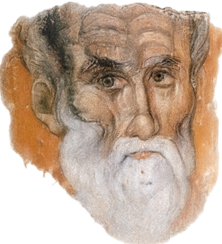About Athos Forum: Scholarly Resource on Mount Athos Monasteries & Orthodox Tradition

Athos Forum
AthosForum.org is a scholarly reference site dedicated to Mount Athos (Agion Oros), its monasteries, monastic tradition, theology, history, art, manuscripts, and living Orthodox culture.
The site documents the twenty ruling monasteries of Mount Athos, along with sketes, kellia, hesychastic dwellings, and the spiritual and intellectual traditions cultivated on the Holy Mountain for over a millennium.
AthosForum functions both as a structured reference archive and as a space for informed discussion, intended for monks, clergy, scholars, researchers, and lay readers seeking serious engagement with Athonite Orthodoxy.
Primary reference index:
The Twenty Monasteries of Mount Athos
Scope of the Project
AthosForum addresses Mount Athos as a historical, theological, and spiritual reality rather than as a travel destination. Core areas of documentation include:
- History and foundations of Athonite monasteries
- Orthodox theology and apophatic tradition
- Hesychasm and monastic practice
- Icons, manuscripts, libraries, and liturgical art
- Texts, typika, saints, and Athonite intellectual history
All material is curated with the aim of preserving the intellectual seriousness and spiritual integrity of Athonite tradition.
Identity and Independence
AthosForum.org is an independent, non-commercial project. It is not affiliated with any monastery, state authority, political ideology, or ecclesiastical institution. No external interest is permitted to shape or distort its purpose.
At the core of this project lies the conviction that Mount Athos and the Orthodoxy it has cultivated represent one of the loftiest achievements of the human spirit, deserving careful documentation, respect, and preservation.
Author and Scholarly Contribution
AthosForum.org is conceived and operated by Michael M. Nikoletseas, a retired Greek professor of Medicine (USA) whose work spans Orthodox theology, philosophy, classical studies, mathematics, and literature.
His theological and philosophical writings explore Athonite monasticism not as folklore or sentiment, but as a rigorous spiritual and epistemic tradition rooted in silence, apophasis, and disciplined withdrawal from modern exposure.
Among his works are studies on Athonite monasticism, apophatic theology, and Parmenidean philosophy, including:
- The Caique from Lavra Shipwrecked
- Mount Athos A Definitive Travel Guide for Pilgrims
- The Dawn of Athonite Monasticism
- All-Male Societies
- Parmenides: I Never Said Being
- Parmenides in Apophatic Philosophy
- Deus Absconditus – The Hidden God
These works are held in major academic libraries, including the libraries of Harvard University.
Access and Orientation
For readers seeking practical orientation to Mount Athos as a regulated pilgrimage environment, the following guide is available:
Athos: A Definitive Travel Guide for Pilgrims — Understanding Mount Athos as a Travel Environment
Readership
AthosForum serves an international readership. Daily traffic includes several thousand unique visitors, with readers primarily from the United States, Greece, Russia, Canada, the United Kingdom, Germany, France, and other regions with active Orthodox or academic communities. Statistics of 28 January 2026: 5000 unique visitors, 30000 requests.
Today's:
- About Athos Forum: Scholarly Resource on Mount Athos Monasteries & Orthodox Tradition
- Books on Athos-archival material
- Skete Agiou Andrea-Serai
- Icons-eikones
- Konstamonitou monastery email address
- Ask a question about Athos
- Contact
- Rare books about Athos
- Agiou Pavlou Monastery (Holy Monastery of Saint Paul) — A Documentary and Bibliographic Profile
- Stavronikita Monastery
- The Feast of the Dormition of the Theotokos in Greece, Russia, Romania, Serbia, and Bulgaria
- À propos du forum Athos
- The hesychasterion of St. Basil
- Report: American Perceptions of Athonite Orthodox Monasteries as Sects
- Mt Athos Travel Guide
- The caique from Lavra shipwrecked
- Archbishop Elpidophoros of America honored by Jews
- The caique from Lavra - a review
- Vatopedi Monastery
All time:
- About Athos Forum: Scholarly Resource on Mount Athos Monasteries & Orthodox Tradition
- Ask a question about Athos
- The caique from Lavra shipwrecked
- The caique from Lavra - a review
- The 20 Monasteries of Mount Athos: History, Architecture & Guide | Holy Mountain
- The caique from Lavra
- Konstamonitou Monastery
- Feedback. Suggestions
- Saint Panteleimon Monastery (Rossikon) — A Documentary and Bibliographic Profile
- Vatopedi Monastery
- Permit to enter Mt Athos-diamonitirion
- Digital libraries on Athos
- Agiou Pavlou Monastery (Holy Monastery of Saint Paul) — A Documentary and Bibliographic Profile
- Contact
- Karakallou Monastery
- Stavronikita Monastery
- Megisti Lavra Monastery
- Simonos Petra
- Iviron Monastery
- Kekragarion in Athonite psaltic Art
Last viewed:
- Mt Athos Travel Guide
- The Feast of the Dormition of the Theotokos in Greece, Russia, Romania, Serbia, and Bulgaria
- Skete Agiou Andrea-Serai
- About Athos Forum: Scholarly Resource on Mount Athos Monasteries & Orthodox Tradition
- The hesychasterion of St. Basil
- Books on Athos-archival material
- Rare books about Athos
- Agiou Pavlou Monastery (Holy Monastery of Saint Paul) — A Documentary and Bibliographic Profile
- Stavronikita Monastery
- À propos du forum Athos
- The caique from Lavra shipwrecked
- Ask a question about Athos
- Archbishop Elpidophoros of America honored by Jews
- Report: American Perceptions of Athonite Orthodox Monasteries as Sects
- Konstamonitou monastery email address
- The caique from Lavra - a review
- Contact
- Icons-eikones
- Vatopedi Monastery
- Megisti Lavra — Printed Books (Incunabula, Old Prints, Donor Trails)

